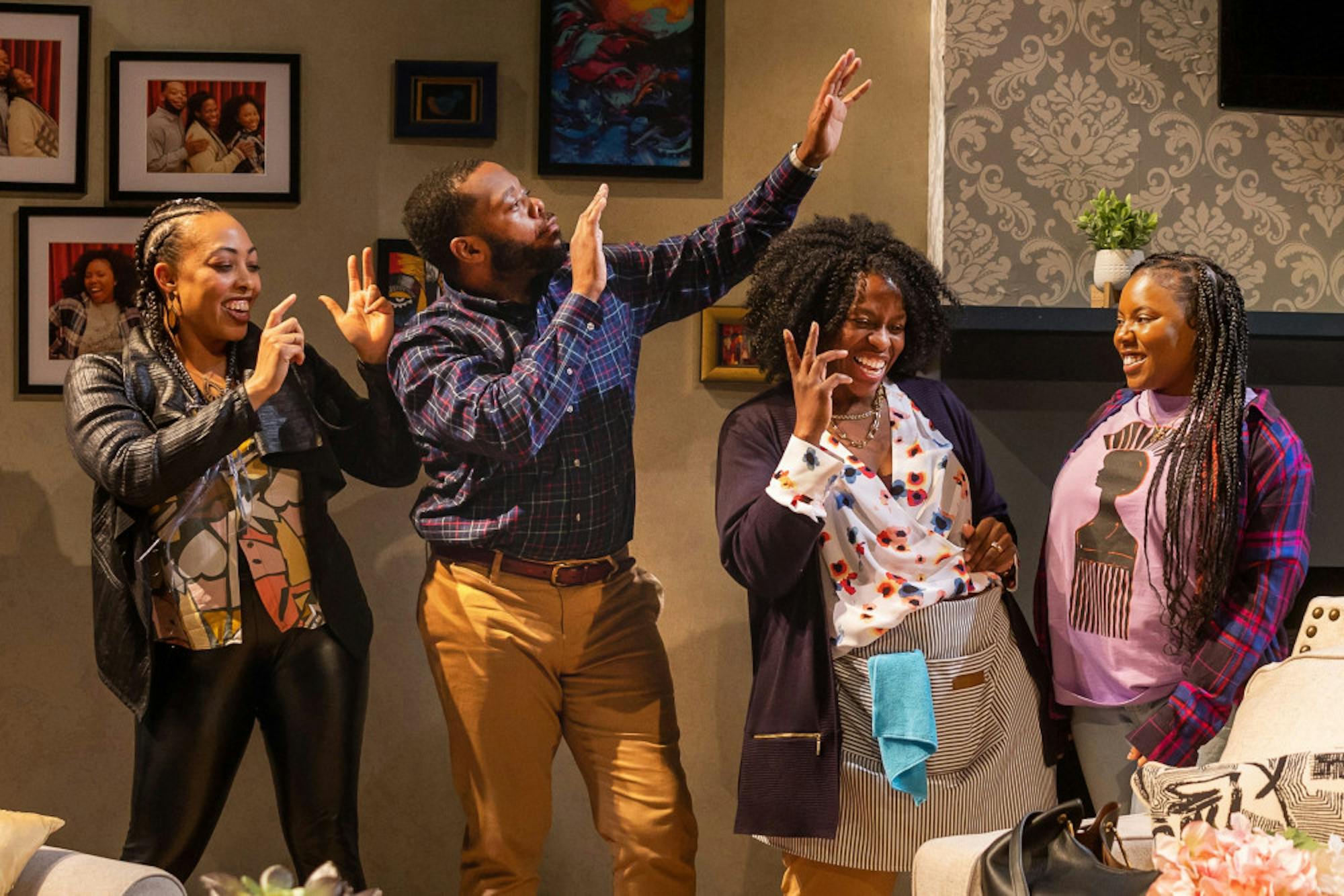Boston’s SpeakEasy Stage opened “Fairview” (2018), written by Jackie Sibblies Drury, on Friday, Feb. 17. Running through March 11, this production depicts the white gaze with a Pulitzer Prize-winning script and commanding cast.
In a sitcom-esque opening, the Frasiers are introduced. The Black, middle-class family prepares for the birthday dinner of their grandmother with all of the usual family dynamics: remembering the last-minute shopping items, timing the meat, burning the cake. In the following two acts, perspectives are shifted. Each act layers upon those previous ones. The result is a cohesive show, seamlessly unfolding a confrontational narrative for audiences.
Tremendous efforts were made by the production team to prevent spoilers of the performance, so this review will not discuss beyond the first act. The company promises “one of the most outrageous and jaw-dropping endings in theatre history,” and certainly delivers.
Director Pascale Florestal, when prompted to share, without spoilers, what this play is about, described it as a depiction of the white gaze. Unlike most Black theater, this is a play written by a Black playwright and performed by Black cast members but written for a white audience.
An ArtsBoston report determined that Boston’s arts audience is predominantly white, and Black actors’ experiences reflect this. After the fall 2022 production of “Fabulation” (2004), Lyndsay Allyn Cox expressed her experience performing the art intended for Black audiences in predominantly white spaces, saying to the Boston Globe, “I don't want to perform this play for a house full of white people. I’m tired of doing that.”
Now performing as Jasmine in “Fairview,” Cox challenges audiences and their interactions with Black media. “Fairview” demands reflection on whose stories are told and who is able to write these stories.
While the first act may be classified as a comedy, “Fairview” leaves audiences thinking about much more than humor as they leave the theater. The first act exists within the average audience’s comfort zone, but the latter acts are often uncomfortable as the white gaze and Black stereotypes are explored. The promise that something powerful will be said and that meaning will be derived renews the audience’s commitment to the performance.
From the cast, the three leading Black women share particularly powerful performances. Lyndsay Allyn Cox (Jasmine), Yewande Odetoyinbo (Beverly) and Victoria Omoregie (Keisha) each deliver beautifully reflective performances during the one hour and 45 minute runtime.
The production elements are well done and complement the script’s dynamic use of perspective and comedy. A believable, Black family’s home is built before the latter acts distort it.
Many scripts attempt to break the fourth wall in their final scene, but few of these moments are fruitful for audience members. The production’s final monologue is motivated by its thesis and physically puts audience members in a position to reflect the view that their race allows them.
SpeakEasy Stage prides itself on its mission to produce “intimate, entertaining plays … and compel thoughtful conversation.” “Fairview” is an excellent piece of theater to be producing this Black History Month.
Performances run through March 11 at Roberts Studio Theatre.






